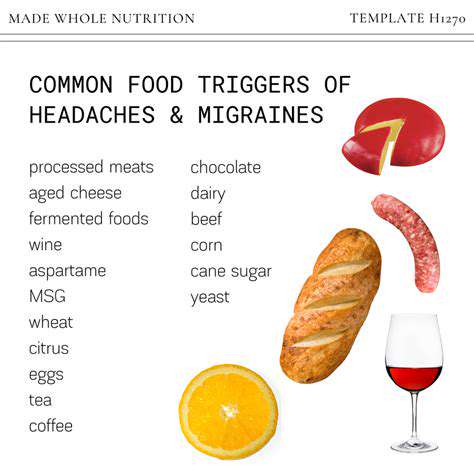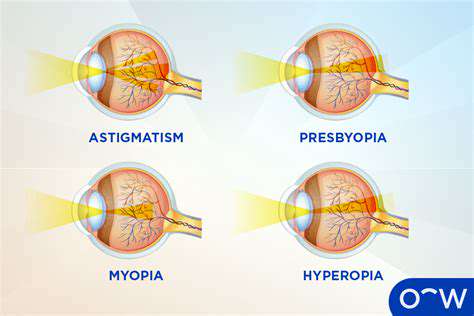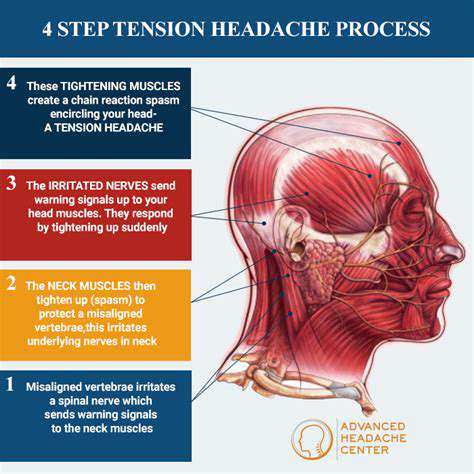Food Triggers for Migraines: What to Watch Out For
Processed Foods and Additives
Processed foods, often loaded with artificial ingredients, preservatives, and flavor enhancers, are frequently implicated in migraine triggers. These additives, including nitrates, sulfites, and monosodium glutamate (MSG), can sometimes act as irritants to the nervous system, potentially setting off a migraine attack in susceptible individuals. Many processed foods also contain high levels of sodium, which can dehydrate the body, further contributing to migraine symptoms.
It's important to be mindful of the ingredients in packaged foods and to opt for more natural, whole-food options whenever possible. Reading food labels carefully and understanding the potential effects of different additives can help you identify potential triggers.
Chocolate and Other Foods with Tyramine
Chocolate, aged cheeses, cured meats, and fermented foods are often cited as migraine triggers due to their tyramine content. Tyramine is a naturally occurring amino acid that can trigger the release of neurotransmitters, potentially leading to increased blood vessel constriction and dilation, which can result in a migraine headache. While the link between tyramine and migraines isn't fully understood, some individuals are more sensitive to its effects.
Aged Cheeses and Fermented Foods
Aged cheeses, like cheddar, parmesan, and Swiss, as well as fermented foods like sauerkraut, kimchi, and certain types of yogurt, are frequently mentioned as potential migraine triggers. The high levels of tyramine in these foods, as discussed previously, are often implicated. Furthermore, some individuals may be sensitive to other compounds or bacteria present in aged cheeses and fermented foods, leading to migraine attacks.
Caffeine and Alcohol
While caffeine can be a temporary headache reliever for some, it can also act as a migraine trigger for others. Sudden withdrawal from caffeine can also trigger migraines. Similarly, alcohol, particularly red wine and certain types of beer, is frequently associated with migraine attacks. The effect alcohol has on blood vessels and its potential to trigger inflammation in some individuals may contribute to this association.
Specific Fruits and Vegetables
Certain fruits and vegetables, like citrus fruits, pineapples, and avocados, are sometimes implicated in migraine triggers. These foods, while generally healthy, may contain compounds that trigger migraines in sensitive individuals. However, the specific mechanisms by which these foods may trigger migraines are not always clear, and individual reactions vary greatly. It's important to track your diet closely to identify any potential patterns or correlations between food consumption and migraine episodes.
Processed Foods and Preservatives: A Potential Headache-Inducer
Potential Link Between Processed Foods and Headaches
The consumption of processed foods, often laden with preservatives and additives, has been linked to various health issues, including headaches. While a direct causal relationship isn't always definitively established, numerous anecdotal reports and some research suggest a potential connection. Many individuals experience headaches after consuming certain processed foods, and these occurrences can be attributed to various factors, including the ingredients themselves, the food's impact on blood sugar levels, or other internal reactions.
It's important to note that everyone reacts differently to food. What triggers a headache in one person may not affect another. This individual variability underscores the complexity of understanding the relationship between processed foods and headaches.
The Role of Preservatives in Headache Triggers
Preservatives, used extensively in processed foods to extend shelf life, are often cited as potential headache culprits. These substances, while designed to prevent spoilage, can sometimes trigger allergic reactions or inflammatory responses in some individuals. The chemical makeup of different preservatives can vary significantly, which contributes to the diverse range of potential reactions they might cause.
Nitrates and nitrites, frequently used as preservatives in cured meats, are a prime example. While they help maintain the color and texture of processed meats, some individuals are sensitive to these compounds, experiencing headaches as a result.
Processed Food and Blood Sugar Fluctuations
The high sugar and refined carbohydrate content in many processed foods can lead to rapid spikes and subsequent crashes in blood sugar levels. These fluctuations can sometimes trigger headaches, as the body attempts to regulate blood sugar levels. The resulting hormonal shifts and metabolic responses can manifest as a headache or migraine in susceptible individuals. Understanding the impact of processed foods on blood sugar control is crucial for managing potential headaches.
Other Potential Contributing Factors
Beyond preservatives and blood sugar, other components in processed foods, such as artificial colors, flavors, and emulsifiers, might contribute to headaches in some individuals. These additives, often found in a wide array of processed foods, can trigger allergic reactions, inflammation, or other metabolic responses that lead to headache symptoms. Individual sensitivities to these ingredients vary significantly, making it challenging to pinpoint specific culprits.
Dehydration is another factor that often goes unnoticed but can be a significant contributor to headaches. Processed foods, especially those high in sodium, can increase fluid loss, leading to dehydration, which can trigger headaches in susceptible individuals. Maintaining adequate hydration is crucial for overall well-being and can help prevent headaches.
The Importance of Keeping a Food Diary
To better understand personal triggers, keeping a detailed food diary can be incredibly helpful. Recording what you eat, when you eat it, and any accompanying symptoms, such as headaches, can help identify patterns and potential correlations between food consumption and headache occurrences. This systematic approach allows individuals to pinpoint specific foods or ingredients that might be contributing to their headaches, enabling them to make informed dietary choices.
By meticulously documenting meals and any subsequent reactions, individuals can gain valuable insights into their unique physiological responses to different foods. This self-monitoring can be a powerful tool in managing headache triggers and improving overall health.











